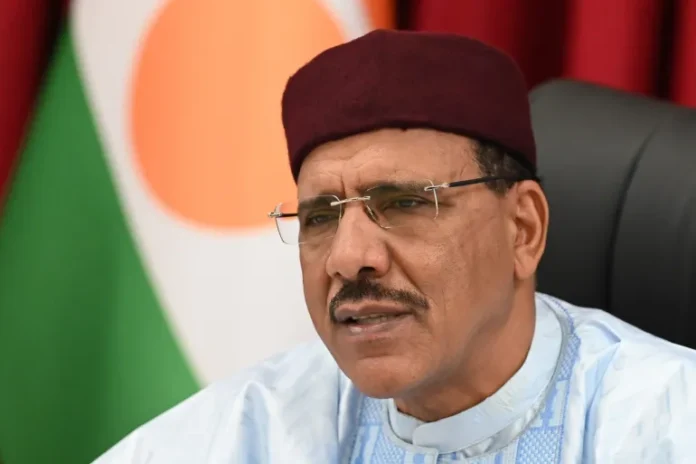Written By Lisa Murimi
As Niger marks the one-year anniversary of the coup that ousted President Mohamed Bazoum, his lawyer has expressed fears that the former head of state could face the death penalty.
Last month, Niger’s top court stripped Bazoum of his immunity from prosecution, allowing him to be tried for treason and other alleged offenses, which are punishable by death.
Bazoum, 64, and his wife Hadiza have been held in detention for the past year without telephone access or visits, except from a doctor, according to his lawyer, Moussa Coulibaly.
France recently demanded their release, but junta leader Gen Abdourahamane Tiani, in a defiant TV address, asserted that no foreign state or organization could dictate Niger’s actions.
At least 30 former government officials and associates of Bazoum, along with several journalists, have been arbitrarily detained, according to a report by Human Rights Watch, Amnesty International, and the International Federation for Human Rights.
Coulibaly claims that the lifting of Bazoum’s immunity suggests he will face a special court that is neither independent nor impartial, risking the death penalty if convicted.
Gen Tiani’s recent speech targeted both France and Niger’s citizens, emphasizing the country’s pursuit of full sovereignty and rejection of external influence.
Niger’s new military rulers have aligned more closely with Russia and formed a new security alliance with Burkina Faso and Mali, while cutting ties with France and the West African bloc, Ecowas.
Despite promises to improve security, Islamist militant attacks continue, frustrating citizens. The military regime has also cracked down on independent media and dissent, creating what Reporters Without Borders describes as a “no-news zone” in the Sahel region.
The US has announced it will withdraw its remaining 1,000 troops from Niger in August, ending its use of the nation as a base for monitoring regional jihadist activity.



















